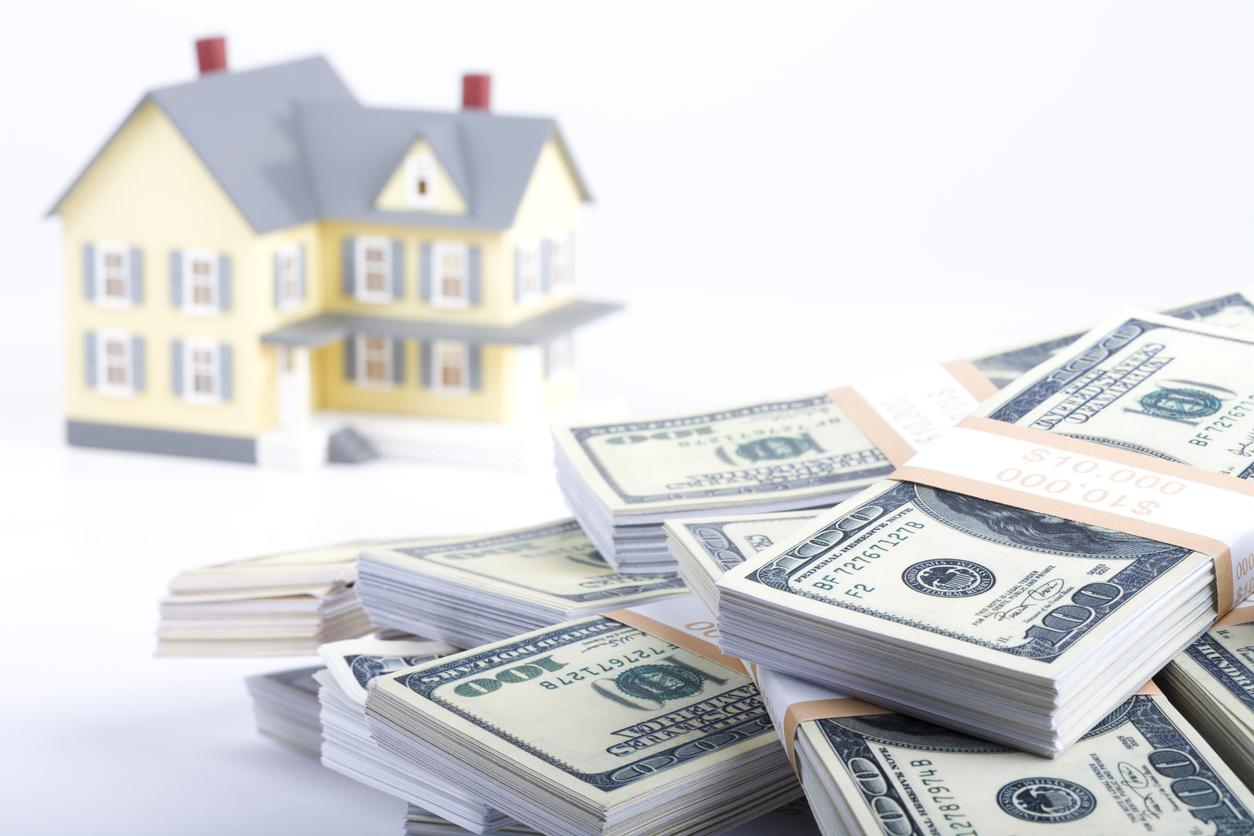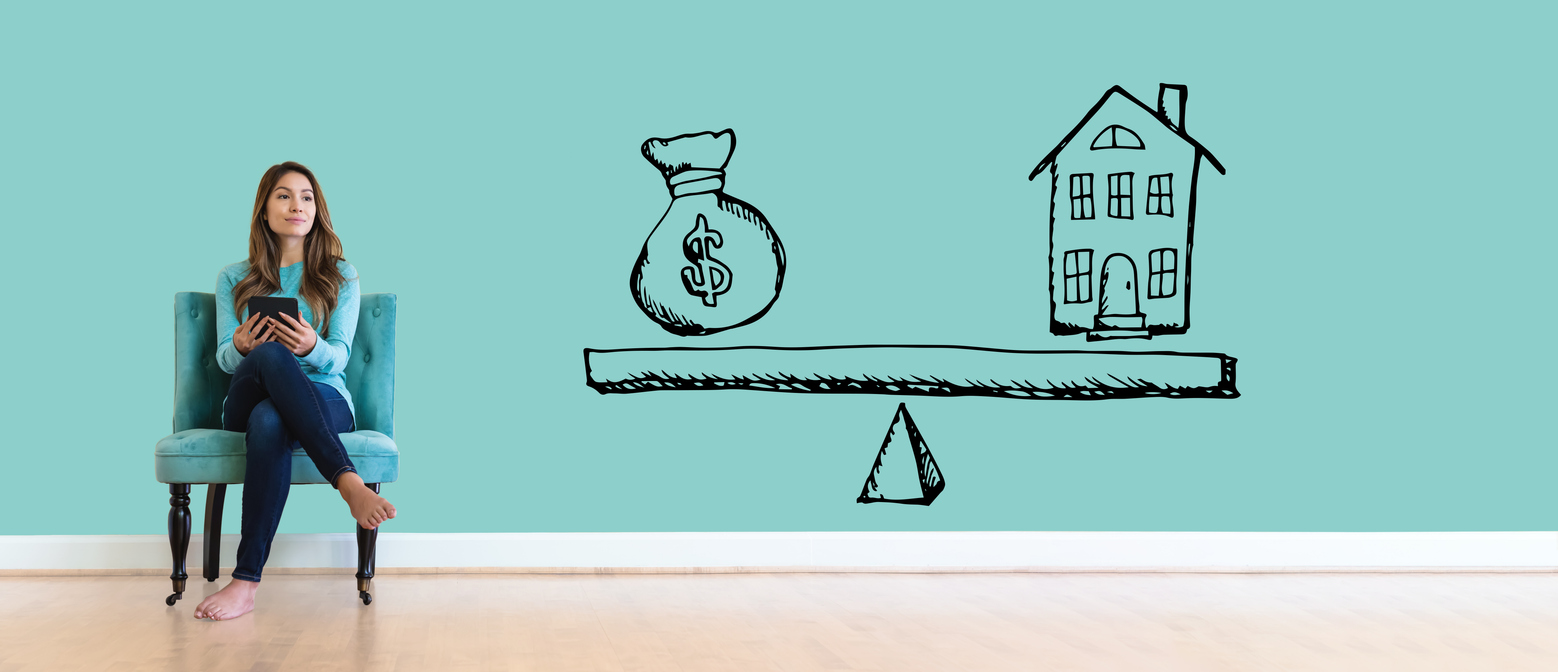A second mortgage is a popular secured loan that provides cash for multiple purpose with low 2nd mortgage interest rates available to qualified borrowers. This 2nd mortgage subordinates to your first mortgage, while any additional loans secured by your home are categorized as second mortgages, regardless of their number.
There are several second mortgage programs that include the home equity loan or home equity line of credit. Homeowners have a unique opportunity to borrow money by leveraging the equity accumulated in your home. This implies that the value of your home, minus the outstanding balance on your primary mortgage, serves as collateral for the secondary mortgage loan.
What is a Second Mortgage Loan?
The term “second mortgage” refers to the loan’s subordinate position to the primary mortgage, meaning that in the event of default and property sale, the primary mortgage lender is repaid before the 2nd-mortgage lender.’
Second mortgages are home equity loans that help a borrower buy a home or refinance your current mortgage, while others can be used for home repairs, debt consolidation, or even to provide emergency cash. In 2025, 2nd mortgages have become especially popular recently as U.S. homeowners seek to tap into a record $29.6 trillion in home equity, according to the SF Gate. If you need funds for home improvements, medical bills, college tuition, debts, or other expenses, here’s what you need to know about second mortgages and how they can help.
Here’s an overview of key aspects regarding second mortgages:
How Do Second Mortgages Work?
- You secure a second loan for a specified amount or establish a credit line based on your home’s equity.
- The 2nd mortgage lender places a lien on your property, entitling them to a legal claim if you fail to repay the loan.
- Monthly payments cover both interest and principal on the 2nd mortgage loan.
Types of second mortgages:
Home equity loan: Involves receiving a lump sum upfront, with repayment featuring fixed interest rates and monthly installments over a predetermined term.
HELOC: The home equity line of credit is often referred to as a HELOC. Theis credit line functions akin to a credit card with a revolving credit line, enabling withdrawals up to your credit limit, and interest is paid solely on the utilized amount. Learn more about how the HELOC interest is calculated.
Here is how a second mortgage works: When you take out a 2nd mortgage you are borrowing against a portion of the equity you’ve built in your home, typically up to 80% LTV, but some 2nd mortgage lenders will offer loans up to 90 or even 95% CLTV in some cases with good credit scores.
Example:
Home Value: $550,000
1st Mortgage Balance: $300,000
Available Equity: $250,000If your lender allows an 90% combined loan-to-value ratio, the total debt secured by your home cannot exceed 85% of its value.
Since you have $300,000 first mortgage balance, you could borrow an additional $195,000 by taking out a second mortgage and going up to 90% CLTV .
First Mortgage: $300,000
Second Mortgage: $195,000
Total Loans: $495,000
Calculation: $495,000 / $550,000 = 0.90 (or 90%)
What are the Rules for a Second Mortgage in 2025?
Having a second mortgage entails making two separate house payments. Typically, lenders providing second mortgages stipulate a maximum debt-to-income (DTI) ratio of 43%, though some may extend it to 50%. Your DTI ratio is determined by dividing your total monthly debt, encompassing both mortgage payments, by your gross income.
Most second mortgage loans come from lenders that are different lenders from the one that approved your initial home loan, whether it’s a bank, credit union, or online lender. It’s advisable to compare second mortgage lenders to secure the best 2nd mortgage rates and terms.
The process of applying for a second mortgage closely resembles that of applying for a primary home loan. You’ll undergo an underwriting process where your lender will assess your credit history and financial background. With a healthy credit score and meeting your lender’s criteria, you could potentially qualify for a loan amounting to as much as 85% of your home equity. Before getting too excited, we recommend consulting with a second mortgage lender that has experience with home equity loans and HELOCs.
Considerations when Taking Out a 2nd Mortgage:
Second Mortgage Interest Rates: Typically, second mortgages carry higher interest rates compared to primary mortgages.
2nd Mortgage Costs: Acquiring a second mortgage may entail closing costs.
Risk: Defaulting on the loan poses the risk of home loss through foreclosure.
What does a 2nd mortgage do?
Through a second mortgage, you have the opportunity to convert equity into cash without impacting your initial low-rate mortgage. These funds can be employed to settle credit card debts, finance college tuition, or serve as a financial buffer for unforeseen future expenditures.
Additionally, this approach helps steer clear of mortgage insurance when making a home purchase. Similar to a cash out refinance or home equity line of credit, second mortgage lending provides the borrower to obtain cash using their home as collateral.
Common Reasons to Get a Second Mortgage:
- Debt consolidation: Utilize funds to settle high-interest debts such as credit cards.
- Home improvements: Finance renovations or repairs to enhance your home’s value.
- Education expenses: Cover tuition or other educational costs.
- Major purchases: Fund significant expenses like a new car or an investment property down payment.
What Are the 2nd Mortgage Rates Today?
Rates for second mortgages come in two variations: fixed or adjustable. Fixed rates remain constant throughout the loan duration, ensuring predictability in your payments. On the other hand, adjustable rates commence lower than equivalent fixed rates but periodically readjust based on market conditions, leading to potential fluctuations in the rate you pay.
Second mortgages present a potentially more economical choice for homeowners compared to private loans or credit cards. The underlying reason for the generally lower interest rates associated with second mortgages is their security through real estate. This enables the mortgaged property to serve as collateral for the loan, providing the lender with the option to foreclose on the property in case of borrower default.
The terms for second mortgages can fluctuate, contingent on the chosen loan type. Opting for a simple interest second mortgage might be suitable for a modest amount repayable swiftly, while a 15 or 20-year second mortgage could be chosen for a more substantial loan amount.
While home equity lines of credit or HELOCs usually have variable interest rates, home equity loans typically come with fixed rates. The 2nd mortgage interest rates for either type of equity loan are generally higher than those for a primary mortgage. This is because second mortgages are considered riskier since they are subordinate to the primary mortgage.
Prior to committing to a second mortgage or equity line of credit, carefully assess the pros and cons. Seeking guidance from a financial advisor can provide insights into the associated risks and implications.
2025 might be the year for you to lock into lower second mortgage rates with a good terms and an affordable monthly mortgage payment.
How Can I Access the Funds with a 2nd Mortgage?
The disbursement of funds depends on whether you have a home equity loan or a HELOC.
Lump Sum: A home equity loan, functioning as a traditional second mortgage, provides a one-time lump sum of money that can be utilized as desired. Repayment occurs gradually over time, typically through fixed monthly payments. Each payment covers both interest and a portion of the loan balance.
Credit Line: HELOCs offer flexibility, allowing you to receive a lump sum initially and access a pool of funds over time. An initial draw may be required when opening the line, but you have the option to tap into additional funds later. Lenders establish a maximum borrowing limit, enabling multiple borrowings until reaching the credit ceiling. Similar to a credit card, continuous borrowing is possible on a home equity line of credit or HELOC, provided the credit limit is not exceeded.
Talk with Experienced Second Mortgage Lenders

How Many Years Are Available with Second Mortgage Terms?
The difference in interest rates is influenced in part by the terms of the loans, as second mortgages typically have shorter repayment periods, often around 20 years. Additionally, the discrepancy is attributed to the lender’s risk, as in the event of foreclosure, the lender holding the second mortgage would be second in line to receive payment.
What Are the Requirements to Qualify for a 2nd Mortgage Today?
To qualify for a second mortgage in 2025, lenders evaluate several key factors, including credit score, home equity, debt-to-income ratio, and financial stability. Most lenders require a credit score of at least 620, but for the best rates, a score of 700 or higher is preferred. Equity requirements typically demand at least 15-20% home equity, meaning your loan-to-value ratio should be 80-85% or lower.
2nd Lenders also assess your DTI ratio, which should generally be below 43% to ensure affordability. Income verification is required, so expect to provide pay stubs, tax returns, and bank statements to prove stable earnings. Some lenders may have minimum loan amount requirements, often around $25,000. Additionally, an appraisal may be required to determine your home’s current value.
For fixed-rate second mortgages, expect higher interest rates than primary mortgages, while home equity lines of credit (HELOCs) offer variable rates with flexible borrowing. Borrowers with strong credit, solid income, and significant equity have the best chances of approval and favorable terms. Shopping around and comparing lender offers can help secure the best deal for your second mortgage.
Refinance vs Second Mortgage
Consider getting a second mortgage when you already have a fixed mortgage interest rate below the current market levels. For example, let’s say you have a 3.5% fixed mortgage rate on a $400,000 home loan and you want to get access to $50,000 to install a swimming pool in your yard.
Should you get a cash out refinance for $450,000 at 6.5% to finance the home improvements? It makes more sense with this scenario to keep your low rate mortgage and take out a 2nd mortgage loan for the $50,000 even if the second mortgage interest rate is around 8.5% because when you add up both first and second mortgage payments the amount will be less than refinancing your existing mortgage for a higher interest rate today.
Are Refinancing and 2nd Mortgages the Same Thing?
No. This is a common misconception. Many homeowners find themselves puzzled by the contrast between a refinance and a second mortgage. The distinction of a mortgage refinance is that the homeowner replaces their primary mortgage with a new loan. In a second mortgage transaction, the homeowner acquires a new loan without altering the terms of their existing home loan.
Second mortgages are preferable if you already enjoy a favorable interest rate on your mortgage and require additional funds for endeavors like home repairs or funding a child’s college education. Refinancing offers a means to tap into equity without introducing an extra monthly payment. Nevertheless, opting for refinancing entails paying additional fees at closing to formalize your new loan.
Home Equity Line of Credit vs Second Mortgage
A home equity line of credit (HELOC) offers homeowners access to funds by tapping into the equity they’ve built in their property. While it functions differently than a traditional mortgage, it is often referred to as a second mortgage. But does a HELOC truly fit that definition? Is it just another layer of debt, or is it a strategic financial tool? Let’s explore the characteristics of a HELOC, how it compares to other second mortgages, and when it might be beneficial to consider one.
A HELOC provides a revolving credit line based on your home’s equity. Much like a credit card, you can borrow, repay, and borrow again during the draw period, which typically lasts 5 to 10 years. You only pay interest on the amount you draw, not the entire credit limit. Once the draw period ends, the loan enters the repayment phase, during which both principal and interest payments are required.
A HELOC is often referred to as a second mortgage because it uses the same property as collateral. However, unlike a traditional second mortgage—where you receive a lump sum—HELOCs offer ongoing access to credit. The lender places a lien on the property, similar to the primary mortgage, which makes the HELOC subordinate to the first mortgage in case of foreclosure.
Differences Between HELOCs and Fixed Rate Home Equity Loans
While both a HELOC and a traditional second mortgage rely on your home’s equity, they differ in structure and purpose:
- HELOC: Provides revolving access to funds, offering flexibility for ongoing projects or expenses.
- Home Equity Loan: Provides a lump sum payment with fixed monthly installments, suitable for large, one-time expenses.
Additionally, HELOCs typically come with variable interest rates, meaning payments may fluctuate over time, whereas most traditional second mortgages have fixed rates.
Ultimately, whether you choose a HELOC or another form of second mortgage depends on your financial situation and long-term goals. Careful consideration will ensure you make the right choice to support your financial well-being.
Benefits and Risks of Getting a Second Mortgage in Today’s Market
Accessible Cash: A second mortgage provides a lump sum or a source of credit through a HELOC when you require additional funds.
Ease of Qualification: Secured by your home, qualifying for a second mortgage may be simpler compared to unsecured loans like personal loans.
Lower 2nd Mortgage Interest Rates: While the interest rate on a second mortgage is likely higher than your primary mortgage, it tends to be lower than alternatives such as personal loans and other unsecured loans. Compare the HELOC vs personal loan.
Potential Tax Savings: Depending on the loan’s purpose, interest paid on a second mortgage may be tax-deductible, offering potential reductions in federal and state tax liabilities. Of course, you always should consult with a tax advisor for detailed information.
Obtaining a second mortgage allows you to tap into your property’s equity, providing immediate cash for various purposes, including:
- Home remodeling projects.
- Paying off high-interest credit card debt and adjustable rate unsecured loans
- Contributing to the down payment on an additional investment property.
Risks with 2nd Mortgages and HELOC Loans
Potentially High Fees and Lending Costs: Second mortgages often incur higher interest rates compared to traditional first mortgages. Additionally, associated 2nd mortgage closing costs such as loan origination, appraisal, and underwriting fees contribute to the overall expense.
Qualification Challenges: Despite having equity or requiring financial assistance for a down payment, qualifying for a second mortgage may be challenging. Lenders typically have specific criteria, including minimum equity percentages, credit scores, or property market values, making this option unavailable to everyone.
Property Risk: Failure to meet payment obligations puts your home or property at risk. Second mortgage lenders have the authority to pursue foreclosure or legal action to recover their debt, even if you’re diligently paying the primary mortgage.
Frequently Asked Questions for Second Mortgages
Is a home equity line of credit a second mortgage?
Technically, a home equity line of HELOC is a 2nd mortgage. Many people confuse the terms and refer to a “second mortgage” as a fixed rate home equity loan. 2nd mortgage is the broad term to covers both a variable rate HELOC and fixed equity loan. A HELOC is a credit line, similar to a credit card, with variable interest rates, and you only pay interest on what you borrow. In contrast, with a fixed rate 2nd mortgage, you receive the funds at closing and start making payments immediately.
Can you refinance a 2nd mortgage?
Yes, you can refinance a second mortgage just like a traditional home loan. Additionally, you can opt to borrow money in installments through a credit line. If necessary, you still have the option to refinance the second mortgage.
Can a second mortgage be discharged in chapter 7 bankruptcy?
Yes, in rare instances when you can document that your home’s value has decreased since you purchased it, Chapter 13 bankruptcy might help you discharge your second mortgage through a process called “lien stripping.” Lien stripping can be used to remove your second mortgage lien from your house, but is very rare in 2024. In most cases consumers filing bankruptcy are unable to discharge a second mortgage in a bankruptcy because their home is worth more than the balance totals of their 1st and 2nd mortgages.
Can you stop a second mortgage foreclosure?
Many people email us asking how to stop a second mortgage foreclosure. The easiest way to stop a foreclosure is to get caught up on your 2nd mortgage payments. The other method is more challenging but possible if you file for bankruptcy or initiate a lawsuit against the foreclosing party to possibly stop the foreclosure entirely or at least delay it. If you have more time, you can apply for a loan modification or explore other workout options.
Are You a Good 2nd Mortgage Candidate?
Second mortgages can be useful tools, but they’re not suitable for everyone. As mentioned, they can be a smart way to pay off higher-interest debts, but if you choose this route, ensure the savings outweigh any closing costs associated with the loan. Additionally, you must be confident in your ability to repay the loan, as your home will be used as collateral.
A second mortgage can also be a good option if you need cash but don’t want to use a cash-out refinance, which would replace your current mortgage loan with a new one at a potentially higher rate.
References
CFPB (2023) What you should know about home equity lines of credit.
RefiGuide (2024) What is a second mortgage loan?
NerdWallet (2023) Understanding how HELOCs work as a second mortgage.




